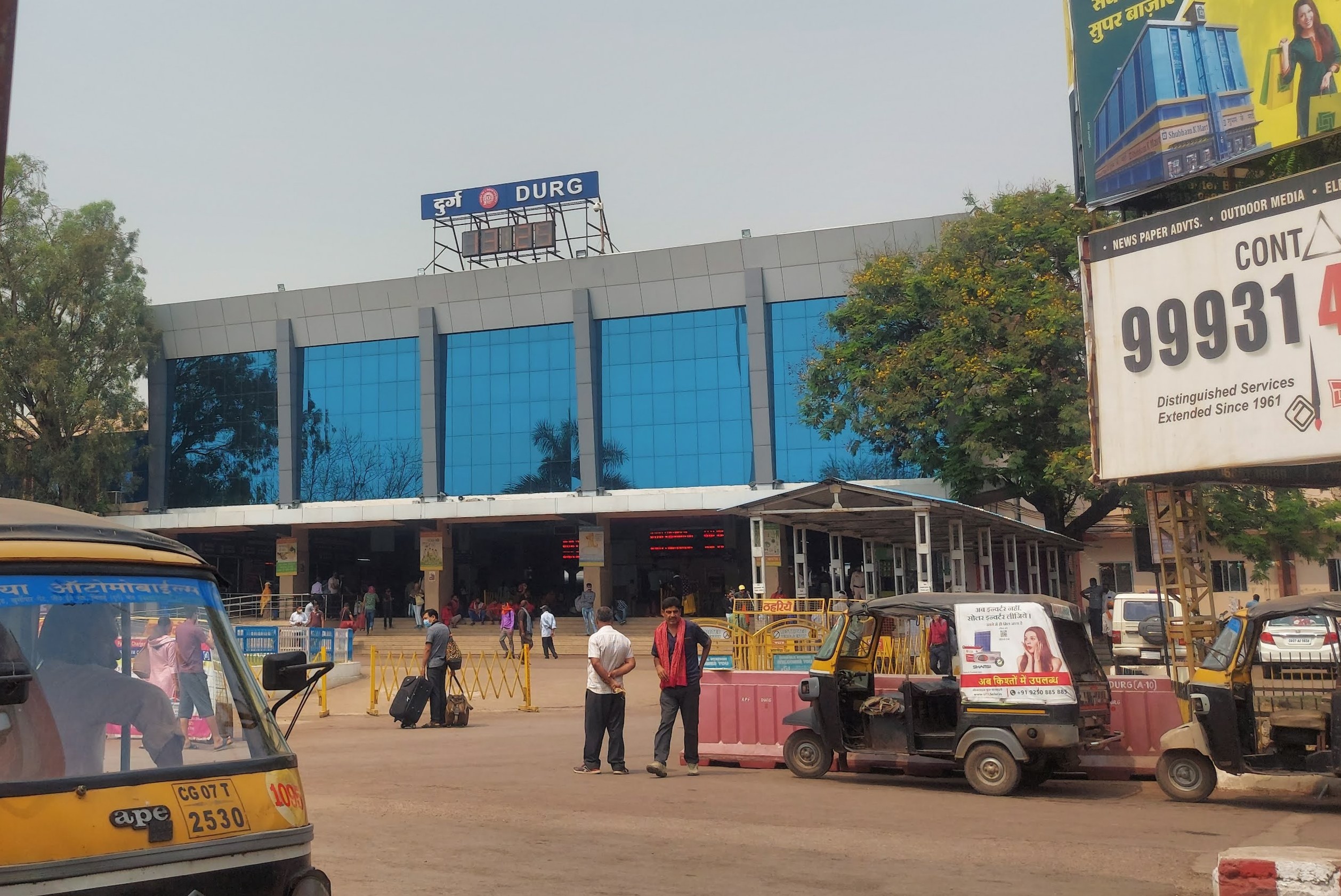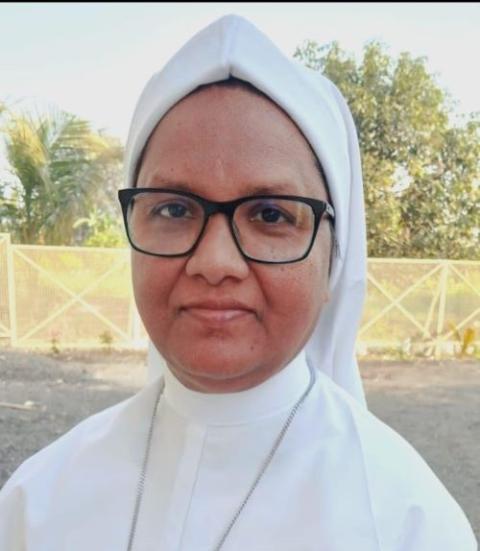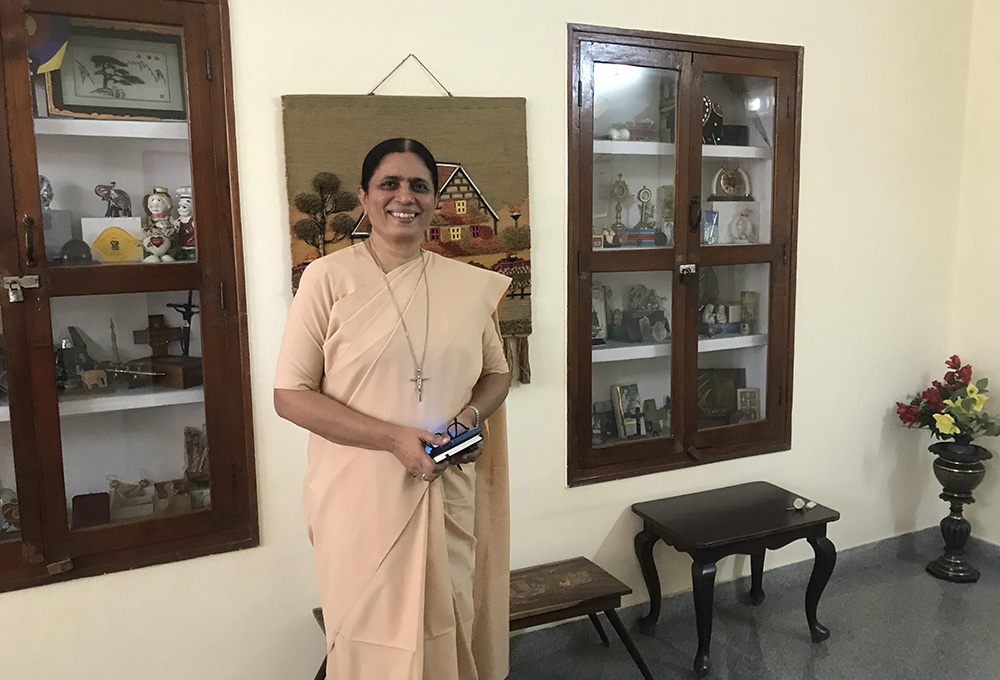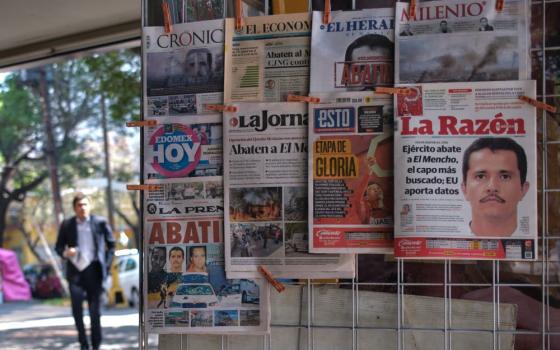
Durg railway station in Chhattisgarh, India (Wikimedia Commons/CC-Share Alike 4.0 International/Vinoth offl)
The arrest and detention of two Catholic nuns on allegations of human trafficking and forced religious conversion has snowballed into a major political controversy in central India.
Church leaders in India have appealed for the immediate release of Srs. Vandana Francis and Preeti Mary, and opposition members demanded justice for them.
The nuns, members of the Assisi Sisters of Mary Immaculate, an Indigenous congregation, along with a tribal youth identified as Sukaman Mandavi, were accompanying three young women when they were arrested July 25 by the Government Railway Police at Durg railway station in Chhattisgarh.
Later that day, a local court remanded them to 4-day judicial custody. The police sent the women, between ages 18 and 22, to a shelter home.
"Our sisters were in the railway station to pick up the three women to work as domestic help in our convents," the nuns' provincial, Sr. Nitya Francis, told Global Sisters Report on July 29.
"The charges against them are totally baseless as the women are adults and had come to the railway station on their free will and the consent of their parents," said Francis, who heads the congregation's Nirmal Mata (Immaculate Mother) province, based in Bhopal, the capital of Madhya Pradesh, Chhattisgarh's western neighbor.
The nuns were reportedly arrested under pressure from Bajrang Dal activists, a Hindu militant group that says Christian missionary activities are a cover for religious conversion.
The young women told police that they were Christians and joined the nuns on their own.
Video footage shows Hindu activists threatening the women and the nuns inside the police station.

Sr. Nitya Francis (Courtesy of Archdiocese of Bhopal)
Francis, who met the arrested nuns in jail, said they were treated well there.
"We do not do anything wrong," Francis said. "It is known to everyone. But this incident has shaken our conscience as we do not feel safe even in our travels. We work for the underprivileged or downtrodden, but still get targeted."
However, the "support of society at large and the church leaders in India" has comforted her people, she added.
Rahul Gandhi is the leader of the opposition in the Lok Sabha (lower house of parliament). In social media posts July 28 he called the nuns' arrest an example of the "mob rule" under the federal government led by the Hindu nationalist Bharatiya Janata Party (Indian People's Party).
The party also rules Chhattisgarh state.
The nuns' arrest "reflects a dangerous pattern: systematic persecution of minorities under this regime," Gandhi told the house on July 28. "We will not be silent. Religious freedom is a constitutional right. We demand their immediate release and accountability for this injustice," he added.
Opposition members, primarily from the detained nuns' home state of Kerala in southern India, protested in the parliament premises in New Delhi, holding banners demanding justice for the sisters. Some visited the nuns in the jail on July 29.
'We do not do anything wrong. We work for the underprivileged or downtrodden, but still get targeted.'
— Sr. Nitya Francis
Meanwhile Chhattisgarh Chief Minister Vishnu Deo Sai defended the police action, terming the case as a serious matter of "human trafficking under the guise of religious conversion." He asserted on July 28 that his state was committed to the safety of its women and that the law would take its own course.
Apostolic Carmel Sr. Maria Nirmalini, who heads India's more than 100,000 women religious, termed the arrests as "absolutely shocking and sad." Speaking to GSR on July 29, the president of the Conference of Religious Women India said the nuns were "illegally detained under false charges of human trafficking and forced conversion."
The charges against the nuns were framed without verifying facts and "totally ignoring their submissions," she said.
"It is clear that an entire anti-minority brigade is whipping up a frenzy to create a false narrative and polarize people against Christians and particularly the Indigenous people among whom we work for their welfare," she added.

Sr. Maria Nirmalini, the superior general of the Apostolic Carmel sisters (Thomas Scaria)
Nirmalini called for action against the Hindu activists and the police officials who she said failed in their duties.
She also called for setting up a crisis response team in every diocese as priests and nuns who face similar situations do not know whom to approach for help.
The Catholic Bishops' Conference of India too expressed its "deep anguish and alarm" over the growing climate of hostility and violence directed against minority communities in the country.
"Gripped by fear and pain, minorities find themselves increasingly vulnerable amidst rising attacks by communal elements and the disturbing apathy of those entrusted with enforcing the law and upholding constitutional values," the bishops said in a statement read at a press conference at its headquarters in New Delhi on July 28.
The bishops also urged both the federal and the Chhattisgarh governments to ensure the nuns' safety and secure their release.
Advertisement
The vigilance commission of the Kerala Catholic Bishops' Council, said "the distressing incident is part of a broader and deeply troubling pattern of increasing hostility toward Christians and missionary personnel across India.
"The weaponization of anti-conversion laws by extremist groups is not only unjust but poses a serious threat to the constitutional rights of religious minorities in the country," the council said in a statement on July 27.
"Our service to society — particularly in the fields of education, healthcare and social welfare — is driven by compassion and a commitment to the common good," the statement said.
The commission also pointed out that Article 25 of the Indian Constitution allows its citizens the freedom to choose and practice a religion as a fundamental right.
"Any attempt to criminalize or suppress this right is a direct violation of constitutional values and undermines the very principles of India's secular democracy," it added.






